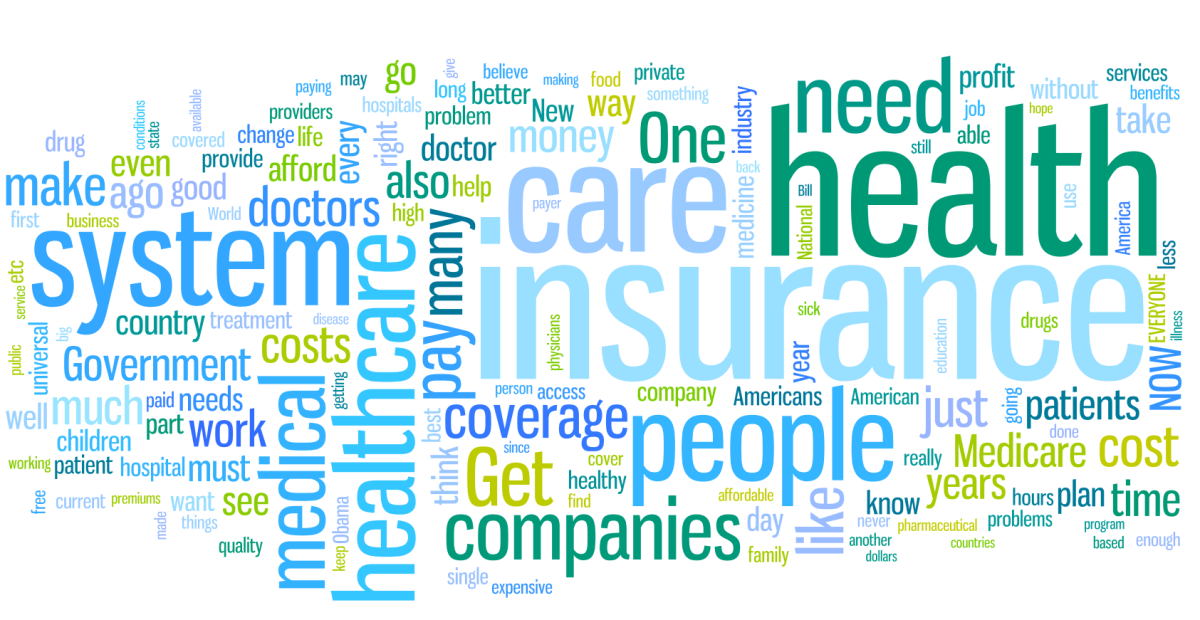The Role of Death in Life

"Nobody should have to die..." Lately I have been hearing lots of sentences that start like that. "Nobody should have to die just because they don't have enough to eat." "Nobody should die because somebody else didn't care." "Nobody should have to die just because they don't have enough money to pay someone else to keep them from dying." Nobody should have to die.
But the fact is that all of us are going to die, sooner or later. We're not going to die because we did something wrong, necessarily. (That can happen, but it's not the usual case.) We're not going to die because somebody else did something wrong, necessarily, either. (Yes, that, too, can happen, but not usually.) Death isn't a result of negligence or malfeasance or a gross social injustice, in most cases. We're all going to die, and it's nobody's fault, and nobody can stop it. We're going to die because that is the way of all flesh.
Death is a normal part of life. Sooner or later, we will all pass that way.
Death and Money
Is it true that you can use money to keep death at bay? Can the grim reaper be bribed? If you had an infinite amount of money, could you live forever? If you had an indefinitely large income, could you postpone death indefinitely?
No, not really. The human life span has a pretty inflexible outer bound. But sometimes, a wise use of resources can come in handy in trying to prolong life. Why? Because while it's almost certain that you will not live beyond 120 years, you could die much younger. It's all about risk management. We know that we will die eventually, but by reducing risk and taking precautionary measures, we might be able to live a little longer.
What sort of risk reduction is available?
- avoiding dangerous activity
- saving resources for tomorrow instead of spending all today
- engaging in hedging behaviors, such as using sea belts or paying for insurance
Avoiding All Danger: Is that Possible?
You could stay home all day long, reduce your activity, and hide from the neighbors, avoiding all potential injury or even contagious disease, and you would still not live forever. What's more, it would be a pretty dull life.
The quality of life suffers when too much attention is given to avoiding risk. A life with minimal risk is not worth living, at least for most people. Each person determines what "a reasonable risk" is for him. Some are daredevils who live for the thrill of danger, and some are more sedate and cautious. Only you can know what is the level of risk taking that makes your life worth living.
Saving versus Spending and the Actuarial Table
People can and do die of hunger. In order to live we have to eat. In order to eat, we have to find a way to get food. Whether the resources we are expending are in the form of money, or labor or natural mineral deposits that we allow someone to mine from the land that we own, all of us pay for our food one way or another. When we have a stockpile of something valuable, one way to make sure that we will have enough to eat tomorrow is not to spend it all today.
However, if you stockpile too much, you may end up dying before you use it all. Unless you have heirs you want to leave it to, you may be cheating yourself of a pleasant life, by spending too little. Death is the deadline for earthly pleasure. Miscalculating -- either by assuming you will die earlier or later than you actually do -- can cost you!
Hedging your bets
Maybe you are aware of the risks, and you decide to take them, but you want to make sure that even if something goes wrong, you will still not pay the ultimate price. For instance, you may be aware of the statistics of death and injury in traffic accidents. Nevertheless, you want to drive or be driven. You decide you will reduce the risk, in the event of an accident, by wearing a seat belt. When you do this, you are willing to give up a bit of comfort in the present, so that you can reduce the chances of death and injury in the event of an accident. The loss of comfort in the present is a certainty. The possible pay-off in the future is a gamble.
The same goes for safety helmets, protective goggles and body armor. In each case, the safety measure is going to cost you something in monetary expenditure, maneuverability, comfort and pleasure. After each use of the safety device, you will know whether it paid off to use it on that particular occasion. Every time we come home safely from a drive during which we were not in an accident, we know, for instance, that on that particular occasion, wearing a seat belt did not pay off. If at the end of your life it turns out that you were never in a car accident, then all those times you wore a seat belt will have been in vain, and you will know on your deathbed that that particular gamble did not pay off.
Catastrophic health insurance is another kind of hedge. The insurance company gambles that you won't get terribly, terribly sick, requiring hospitalization and surgery and drugs and other things that will cost lots and lots of money. You, on the other hand, gamble that you will get terribly sick and will need all those things. Every year that goes by and you pay your premiums, if you don't get terribly, terribly sick, the insurance company gets to keep your money. They win. You lose. But if one day you get terribly, terribly sick, then you win and they lose.
It's a funny kind of game we play, betting against our own health.
Is it worth it?
Is private health insurance worth the gamble? In order for insurance companies to stay solvent, they have to charge more than they pay out. This means that the game has to be rigged so that most of the time, the house wins. In one sense, the insurance company is a kind of parasitic entity, feeding on the mass of people that use its services. If the people who are insured had only pooled their resources, they could have cut out the middleman, and then health insurance would have collectively not cost them more than it would have cost to wait and see who was going to get sick and then pay for the care.
Some people who argue in favor of socialized medicine are banking on this kind of interpretation of the data. However, allowing the government to be the middleman is not going to reduce costs -- and it completely ignores the fact that the only thing that keeps health insurance affordable is that people don't have to buy into it at all.
If people see that the cost of health insurance is considerably higher than the risk of expenditure due to illness, they can simply keep their money in savings, to be used on catastrophic health care, if necessary, and on other things, if not.
The Feed-back Loop
If people buy their own health insurance, the natural mechanism of self-interest and weighing costs and benefits can keep the price of insurance down. This has the side benefit of keeping doctors from racking up charges that nobody is going to pay for. But when individuals are not using their own money to purchase health insurance, then the very availability of insurance can cause medical costs to rise.
There is a conflict of interest between the insurer and the insured. There is also a conflict of interest between doctors and patients. There is a third conflict of interest between insurance companies and doctors.
Patients who are not paying for their own treatment want to get well at whatever the cost, but using the least invasive procedure.
Doctors want to make as much money as they can for the least amount of effort. If they know no one will pay for an expensive procedure, they may not order it done. If they know a deep pocket is available,they will perform the most invasive procedure that they can while getting paid for their time. (Invasive procedures pay more per hour.)
Insurance companies want to make sure that their balance is in the black. (This can be done in two ways: by paying out very little or by paying out a lot and charging even more for the premiums.)
When the patients are not the ones paying the doctor, they can't tell the doctor to perform the least invasive procedure. When patients aren't the ones paying the insurance company, the insurance company has no incentive to keep costs down, based on the reasonable price of a premium. As a result, medical care becomes very expensive.
Medical costs have skyrocketed through the feedback mechanism of de-coupling the beneficiary of the medical care from the provider. Nowadays, not only is there catastrophic medical insurance available, but many people covered by government sponsored programs and through federally mandated benefits from employers also receive routine medical care as part of their "insurance."
When insurance becomes mandatory and is paid for collectively then this affects both the duration and the quality of life of all.
Quality of Life versus Duration
Even when no other person is involved in decisions over life and death, the issue is always this: quality of life versus duration. When deciding whether to use a seat belt you have to ask yourself this: is the risk of death or injury equal to the certainty of the inconvenience? When deciding whether to pay for insurance, the question is the same: is the risk that I will need this equal to the amount of money I will surely be out if I pay the premium? When deciding whether or not to undergo medical treatment, you have to ask yourself this: is the chance of prolonging my life for a few months or years worth this much pain and suffering? This is a decision that only you can make for yourself, and that only a parent can make for a child. The answer isn't the same for everybody. The right answer is the answer you give when you are spending your own money and risking your own life.
There is no absolute safety, and death, someday, sooner or later, is the one thing in life we can all be sure of.
(c) 2009 Aya Katz









